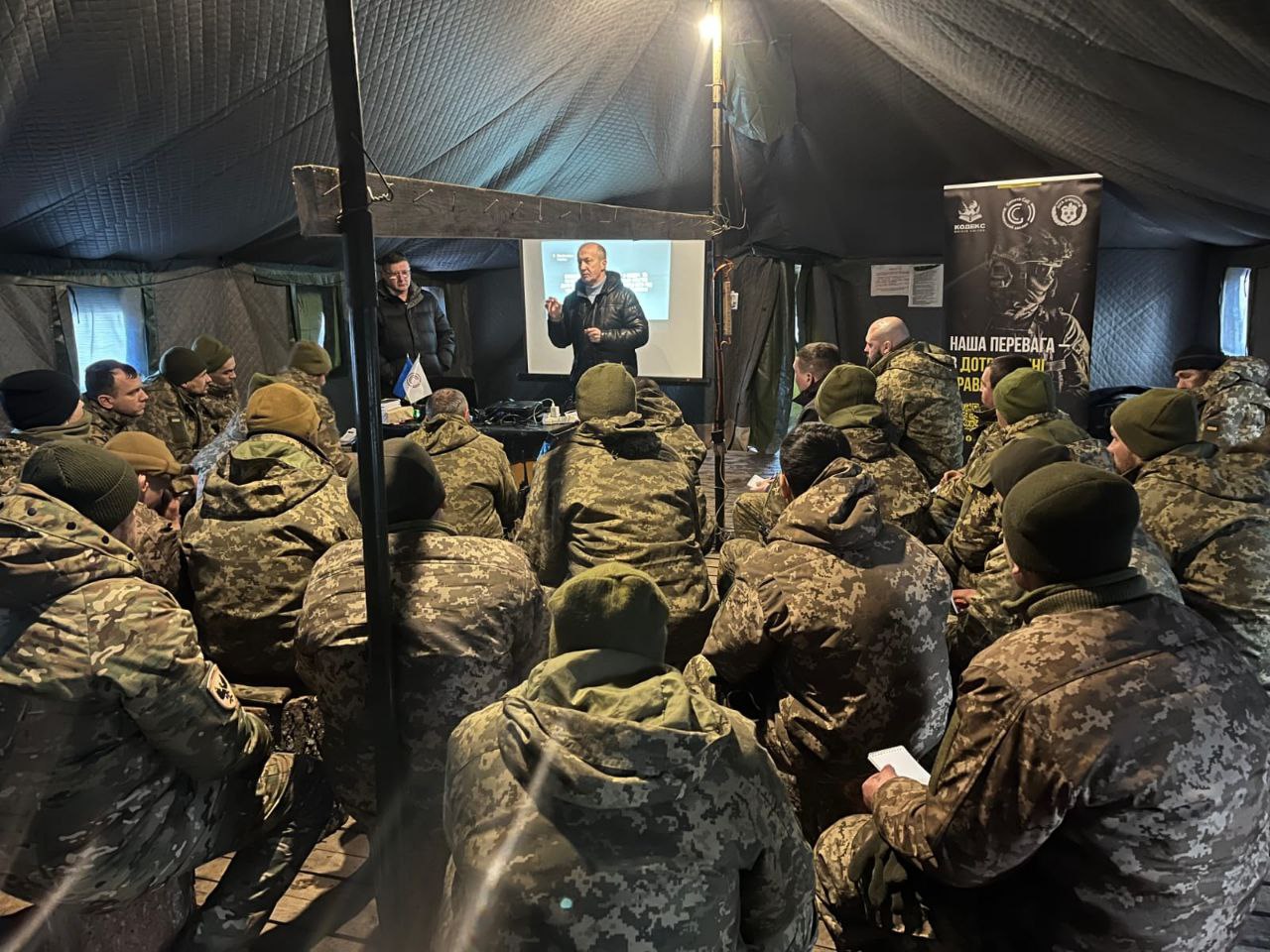The program consists of practical and theoretical courses, although not all will undergo practical training.
From September 1, 2025, a new subject will be introduced in all higher educational institutions – Basic Military Training (BMT). The relevant law was signed by the President of Ukraine, Volodymyr Zelensky, on January 15.
Kashtan NEWS has gathered relevant answers to the most common questions related to BMT.
How long will it last and where will it take place?
The program is designed for 300 academic hours – 90 hours of theory and 210 hours of practice. The theoretical course will be conducted directly at universities, while the practical course will take place at specialized training centers of the Armed Forces during breaks (to avoid interfering with regular studies).
 1
1 For students who enter university after high school, BMT will be taught in the second year. For those obtaining higher education already holding an associate's degree, vocational associate degree, or junior specialist degree, basic military training will commence in the first year.
Who is BMT mandatory for?
The theoretical course will be taught to all full-time and dual form students, regardless of gender and health status. The practical course is mandatory only for male students deemed fit for military service.
“Refusal by a male student, who is recognized as fit for military service, to undergo practical training of the basic preparation is grounds for his expulsion from the educational institution in accordance with the legislation,” the Ministry of Defense states.
Before commencing the practical part, male students must undergo a medical examination in accordance with the Regulations on Military Medical Examination in the Armed Forces. Those who are deemed unfit for military service will be exempt from practical classes.
 2
2 Women who are fit for military service may voluntarily join the practical classes; however, they must register with the Territorial Center for Recruitment and Social Support.
What will be taught in practical and theoretical classes?
As promised by the Ministry of Defense, during the BMT course, students will gain basic knowledge in tactics, first aid, psychological training, military discipline fundamentals, international humanitarian law, and handling firearms. The primary focus will be on weapon training, as well as land navigation and ensuring personal safety in combat conditions, among other topics.
 3
3 During classes, students will use standard firearms of the Armed Forces, including rifles, machine guns, and grenade launchers. Participants in practical classes will also be introduced to military equipment, depending on its availability at training centers.
Will students take an oath after completing BMT?
Basic Military Training replaces the mandatory basic military service that, by law, all men aged 18-25 must complete. Therefore, after completing the full BMT course, students will take a military oath and receive a certificate and military registration specialty.
 4
4 Moreover, completing BMT, like mandatory basic military service, will be a prerequisite for initial employment in public service, local government, or the prosecutor's office.
Can a student who has taken an oath after completing BMT be mobilized?
According to current legislation, the mobilization of men is only possible after they reach the age of 25. Therefore, if a student is not yet 25 years old, he is not subject to mobilization. However, from the age of 18, he may voluntarily join the Defense Forces by signing a contract.
 5
5 Is there an alternative to completing BMT for students whose religious beliefs prevent them from handling weapons?
Currently, such an option is not provided. As explained by the Ministry of Defense, passing exams for BMT and taking the oath are mandatory conditions for male students in higher education institutions.
“If students, for any principles, cannot pass the exam or failed it, or if they refuse to take the military oath, they will not be able to continue their education in higher educational institutions in the future,” explained Deputy Minister of Defense Serhiy Melnyk.
At the same time, lawyer Rostyslav Kravets points out that such an approach contradicts part 4 of Article 35 of the Constitution of Ukraine: “If the performance of military duty contradicts the religious beliefs of a citizen, the performance of this duty must be replaced by alternative (non-military) service.”
“While there is still time, I would advise addressing this issue today, as it relates to the foundations of the Constitution and human rights,” Kravets noted.
Kyrylo MYKHAILENKO